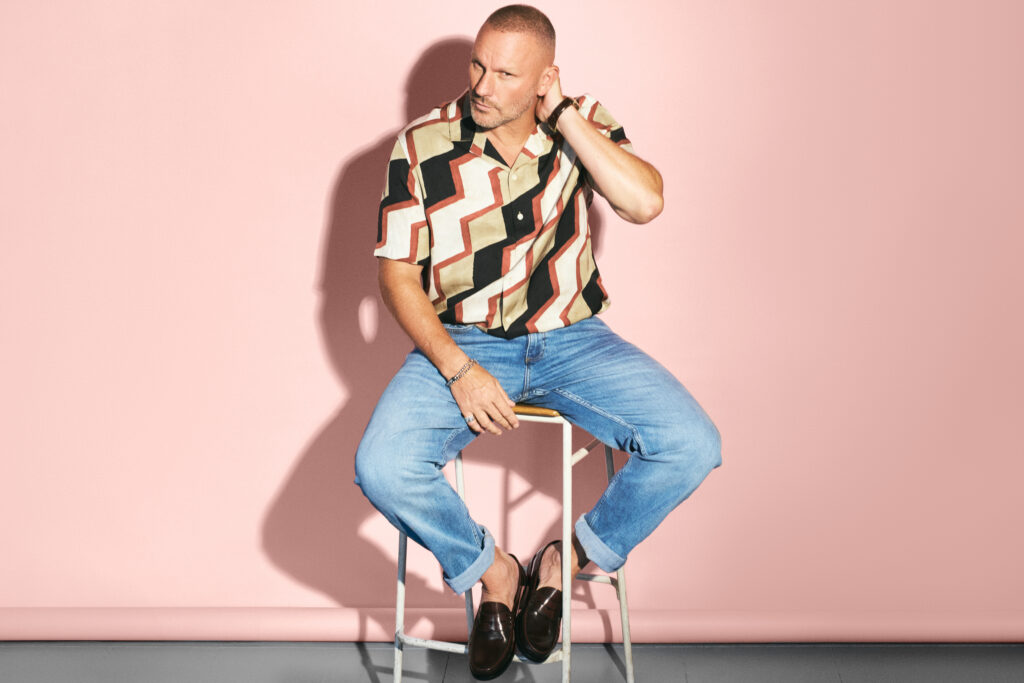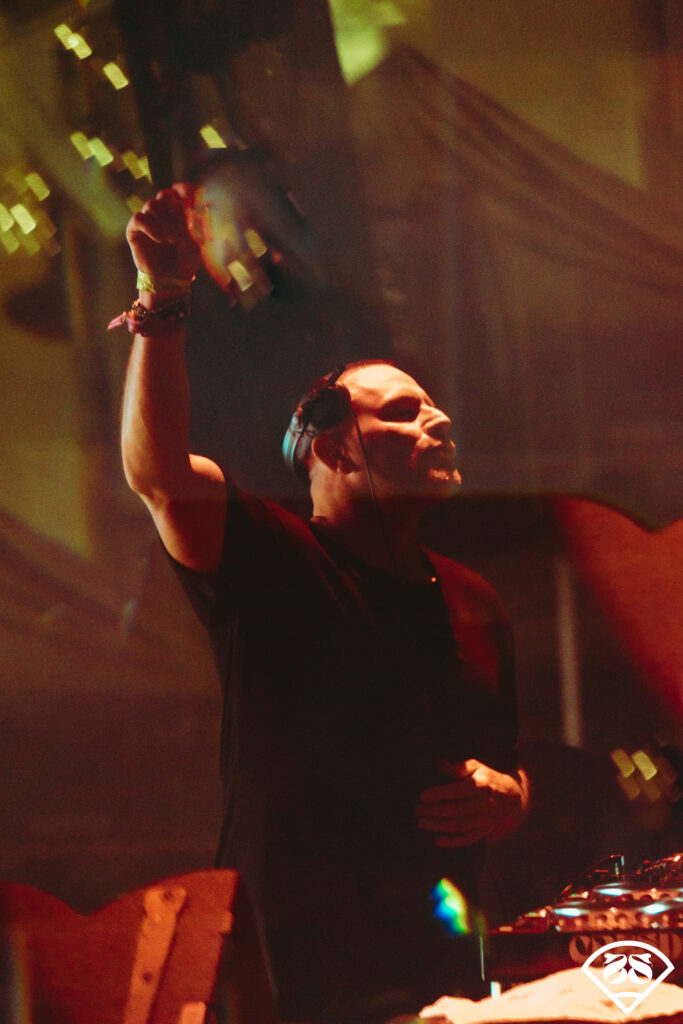For our recent interview on our ‘An Interview With‘ series, we caught up with Toolroom head honcho, Mark Knight. We spoke about his recent release, his new record label, spoke about the growth in Toolroom plus so much more.
Fool’s Paradise is still a relatively young label, yet it’s already carved out a distinct identity. What was missing in the scene that you felt it could offer, and how has your approach to A&R here evolved compared to Toolroom?
Fool’s Paradise came from a real passion for the more soulful, groove-led side of house music, something I felt wasn’t being represented enough in today’s scene. There’s no shortage of club tracks out there, but I wanted to create a home for records that go a bit deeper, music that’s got that funk, that soul, and a real sense of musicality.
With Toolroom, the focus has always been on championing quality club, tech house, house – music, but Fool’s Paradise gives me the freedom to explore a slightly different space. The A&R approach is more about timelessness rather than what’s working on dancefloors right now. It’s about finding artists who understand the roots of house, funk, and disco and who can bring that forward in a fresh and exciting way.
Your latest single, “Fighting Love” with Mark Dedross, breathes new life into Thelma Jones’ classic “How Long.” What was the creative spark behind choosing this track, and how did you balance staying true to its soulful roots while making it work for today’s dancefloors?
The key was respecting the original. We didn’t want to just slap a house beat on it and call it a day. It had to retain that depth and warmth that made the Thelma Jones version so powerful in the first place. So, we built everything around the vocal, keeping the groove rich and organic, making sure it felt like a proper song rather than just a club tool. It’s got that perfect balance—soulful enough for a sunset set, but with enough energy to work on the dancefloor too.
Fool’s Paradise has quickly built a strong reputation for championing soulful, vocal-led house music. In an era where tech-house and minimal sounds dominate, do you see this as a statement against prevailing trends, or is it simply about tapping into what personally moves you?
It’s not about going against anything—it’s just about doing what feels right to me. I’ve always been drawn to music with groove, real instrumentation, and emotion, and Fool’s Paradise is just an extension of that.
Trends come and go, and I think dance music has always moved in cycles. Right now, we’re seeing a huge resurgence of soulful house, disco influences, and live instrumentation, which is amazing to see. But for me, it’s never been about jumping on trends—it’s about making and releasing music that stands the test of time. If that aligns with where the scene is heading, great, but Fool’s Paradise will always be about quality first.
Beyond individual releases, what’s your long-term vision for Fool’s Paradise? Do you see it evolving into a live experience, a platform for new talent, or something beyond just a label?
100%. The plan was never just to release music and leave it at that. Fool’s Paradise has a very clear identity, and I’d love to bring that to life in a live setting—whether that’s intimate club nights, festival takeovers, or even full-on live performances incorporating musicians and vocalists.
It’s also a great platform to nurture new talent. There are so many incredible artists out there who are making soulful, groove-driven house but don’t always have the right outlet for it. If we can give them that platform and help shape the future of the sound, that’s a big part of what Fool’s Paradise is all about.
You’ve built a career on blending the classic and the contemporary in house music. With Fool’s Paradise, do you see yourself as a curator of the genre’s heritage, or is it more about pushing things forward in a way that feels personal to you?
A bit of both, really. I think you’ve got to understand the history of house music to really push it forward in a meaningful way. I’ve always been inspired by the classic records that built the foundations of this scene, and that influence is definitely present in what we’re doing with Fool’s Paradise.
But it’s not about being nostalgic for the sake of it. It’s about taking those roots—funk, soul, disco, proper songwriting—and bringing them forward in a way that feels fresh. That’s always been my approach to music. It’s why I love working with real vocalists, live musicians, and producers who understand that house music is more than just loops and beats—it’s about emotion and groove.
Toolroom has played a huge role in shaping modern house music and has yet again been named Beatport’s best-selling label. What are some of the things coming up this year that will continue to drive it forward?
First off, it’s an amazing achievement to be named Beatport’s best-selling label again. It just shows the consistency of what we do and the quality of the artists we work with. We’ve built a strong reputation over the years, but we never take that for granted. We’re always looking for ways to evolve, whether that’s through fresh talent, new sounds, or innovative projects.
This year is shaping up to be massive We’ve got some incredible releases lined up, both from our core artists and some really exciting new names. The Toolroom Academy is also growing, which is a key part of our long-term vision, educating and developing the next generation of artists who will shape the future.
We recently lost one of our friends, Bowler, who was a massive fan of yours. We used your track ‘Man With A Red Face’ at his funeral as it was one of his favourite tracks.
Do you feel you still get a lot of recognition from this track from 2008? When was the last time you dropped it in one of your sets?
Wow, first of all, I just want to say I’m truly honoured that the track meant that much to Bowler and that it was part of such a special moment. That’s what music is all about, connecting with people on a deep level.
Yeah, ‘Man With A Red Face’ is one of those records that still gets such an incredible reaction, no matter where I play it. I think the reason it’s stood the test of time is that it’s got real musicality to it. I still drop it in my sets now and then, and it always gets an amazing response. I played it recently at a festival, and you could just see the emotion on people’s faces. It’s one of those tracks that really brings people together. And for me, that’s the ultimate goal of music.
You’ve always been a strong advocate for developing new talent. How do you identify the right artists for Toolroom and Fool’s Paradise, and what qualities make someone stand out to you?
For me, it’s all about authenticity and passion. There’s no shortage of technically skilled producers out there, but what really makes someone stand out is when they’ve got their own sound—when you can hear their personality and influences in the music.
With Toolroom, we look for artists who understand the energy and drive of house music but also bring something fresh to the table. With Fool’s Paradise, it’s more about musicality—people who can craft a proper song, not just a club track.
One of the biggest things I look for is longevity. It’s not just about signing a big record and moving on; it’s about building relationships with artists who want to develop their sound and be part of something bigger. That’s what we’ve always done at Toolroom, and it’s the same ethos we’re bringing to Fool’s Paradise.
April 4, 2025



